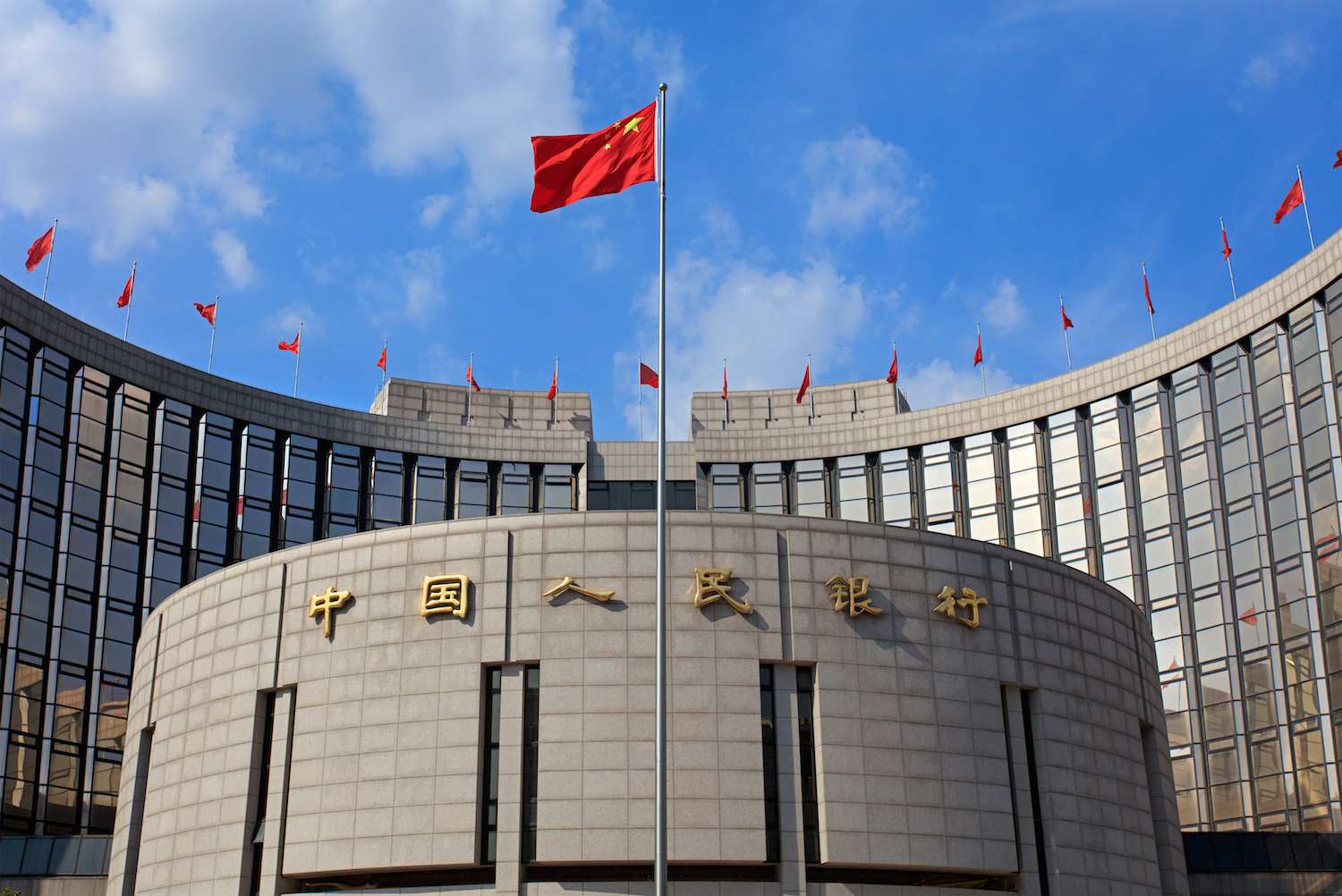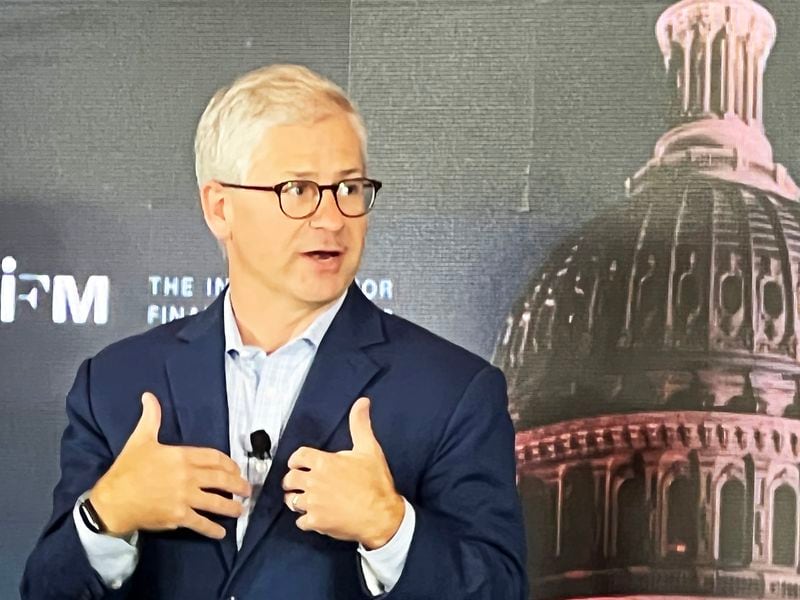Visa-Owned Plaid Has a Hidden Passion for DeFi
Visa-Owned Plaid Has a Hidden Passion for DeFi
Visa-owned fintech enabler Plaid, which connects traditional bank accounts to thousands of digital platforms, including crypto exchange Coinbase, is quietly working with at least two decentralized finance (DeFi) startups.
Plaid’s head of UK, Keith Grose, a former Google wallet builder, has a vision for how crypto (and DeFi) will evolve in tandem with the fintech revolution his company is said to be driving.
The firm currently has integrations with Dharma, the Uniswap-friendly DeFi wallet with early backing from Coinbase and others; Teller Finance, the DeFi startup looking to bring unsecured lending to the Ethereum blockchain; and potentially others.
Open banking and DeFi may occupy quite different levels of digitization’s evolutionary ladder, but Grose sees a “common democratizing thesis” when it comes to accessing and using financial assets.
“I think it’s still a long way before DeFi becomes part of the main route for finance, but it’s a really exciting corner and one that personally I’m passionate about,” Grose told CoinDesk.
Still, nobody would deny DeFi is a stretch for regular fintech. Systems that are completely open to anyone, and where participants’ identities are essentially hidden behind a wallet address, present problems in today’s digital world. But people in Silicon Valley or Wall Street aren’t stupid, they attempt to manage their own disruption, and to some extent even buy into it. Take for example the way enterprise has tried to embrace blockchain, or perhaps the lengths Visa went to in acquiring Plaid.
Armed with a widely-used API and a huge $5.3 billion exit earlier this year thanks to Visa, Plaid has become instrumental in opening up consumer finance by allowing transaction data to be shared with third-party fintech platforms.
But persuading banks to open up to fintech is just the beginning, says Grose, who sees crypto as a next logical step.
‘Scratching the surface’
“We’re only scratching the surface of what open banking can do because it only covers payment accounts,” Grose said. “I think a key thing is to be able to allow people to access and use their crypto assets in tandem with more traditional budgeting applications, payment applications. There’s no reason why, longer-term, your Coinbase account or your Compound wallet could not be included in that so you can track it and use it across many other traditional applications.”
In Grose’s personal opinion, “protocols like Compound that provide an APY on crypto assets have been a long time coming and are a really exciting and super interesting step because that’s when you start to get the point of having the financial ecosystem and the whole space for lenders.”

Another area that excites Grose is decentralized derivatives exchanges like the Andreessen Horowitz-backed dYdX.
“What you’re starting to see, for better or for worse, are some aspects of traditional, high-tech trading firms coming to the retail investor on the DeFi side,” Grose said. “There’s danger in that. But I think ultimately, there are interesting democratization aspects to it as well. Can the average person access financial tools in the future that have traditionally been quite hard to access as a retail investor?”
Streamlining DeFi
The practicalities of what Plaid can do, even providing a holistic view of all your assets with real-time data flowing in and out of a crypto trade you just made, for example, remains poles apart from DeFi, which combines the idea of decentralized exchange (DEXs) with crypto lending, adding a steroid shot of token drops to drive liquidity.
But in the future, a fintech plumbing company like Plaid could play a role in making access to realms like DeFi less daunting, said Howard Krieger, CEO of digital asset lending platform Residual.
“For someone to use DeFi, they have to go through a series of trust exercises before they can participate,” said Krieger. “A company like Plaid can eliminate a whole bunch of risk because they hold information and have the ability to plug different parties together; if Plaid has already verified who I am, that KYC/AML requirement goes away. So I can see where a plumbing company like Plaid could streamline a lot of back-office processes.”
Indeed, the reason Plaid has had an explosive impact, said Grose, is that in order to build applications like Venmo, Robinhood and Coinbase, you need to be able to easily connect bank accounts, authenticate and transfer funds – and building a slick user experience around this is essential.
“When you think about what will be needed for DeFi to take off, a lot is around the user experience and making this accessible to people who are not really deep in crypto,” Grose said. “I think you’re going to see roles for players like us, helping the ecosystem develop longer-term because one of the things holding back DeFi is that it is still a lot of work to actually get up and running. You have to go quite deep into a knowledge base to really get started.”
Cambrian swamp
It’s hard to see how DeFi’s pseudonymous clusters of lenders and borrowers might cross-pollinate traditional fintechs like Funding Circle or SoFi, which rely on knowing as much as possible about counterparties on the platform.
“That’s definitely a difficulty,” Grose said. “If everything is hidden behind the wallet address, that’s completely against the regulation you have to have, in terms of doing lending on any sort of institutional or traditional scale. At some point, there will have to be bridges built there.”
But as a recent opinion piece on CoinDesk points out, nobody knows what will crawl onto land and evolve from crypto’s Cambrian swamp.
For Paul Brody, blockchain lead at EY and co-founder of Ethereum-based Baseline Protocol, the priority is getting DeFi going with privacy so enterprises can use it.
“I hope that’s where DeFi is headed,” said Brody. “Right now, as a consumer product, all this yield farming, SushiSwapping is interesting but not useful. The purpose of financial markets is to allocate capital for productive use. I’m not sure that’s happening here.”









